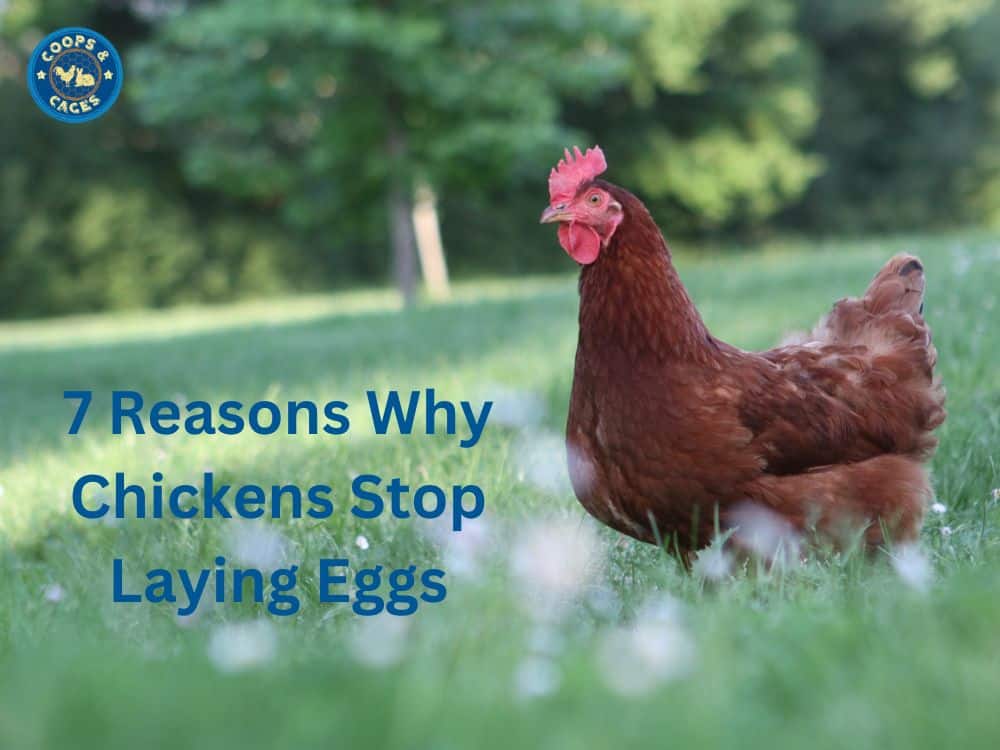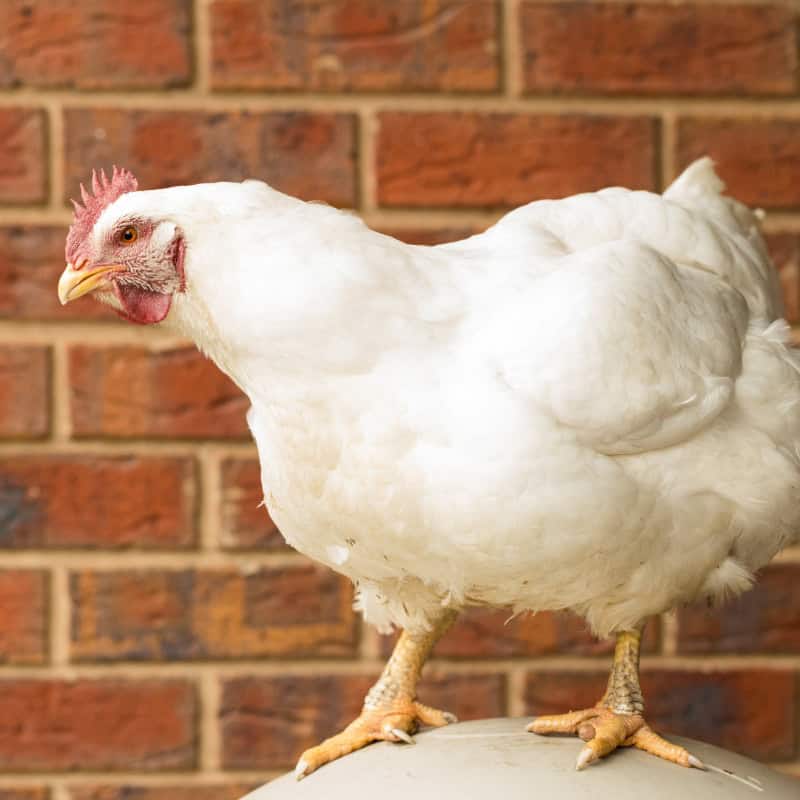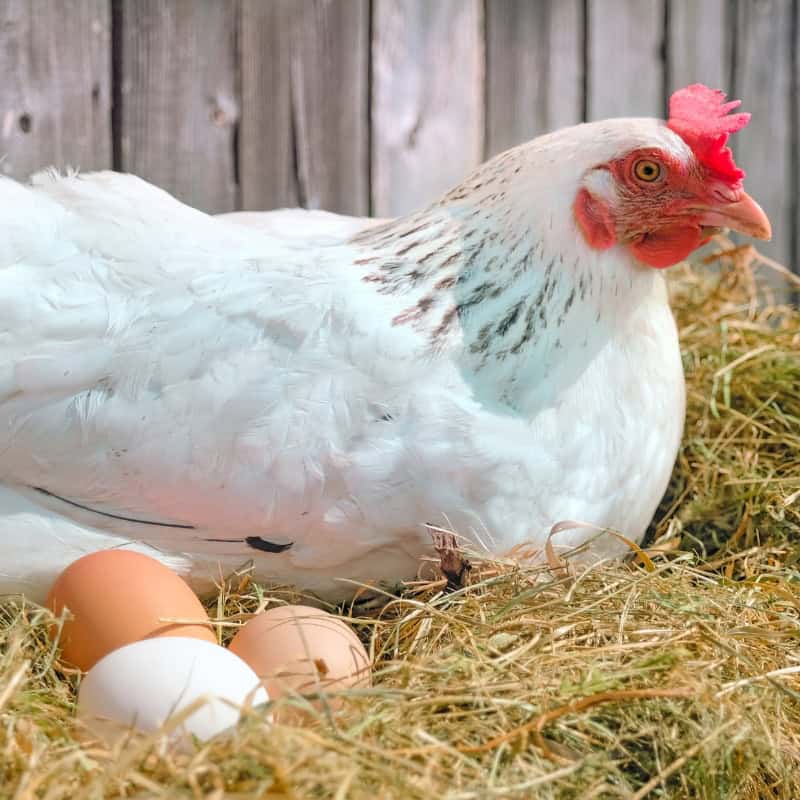Chickens
7 Reasons Why Chickens Stop Laying Eggs
Egg production is one of the key reasons people keep backyard chickens, so it can be frustrating when hens suddenly stop laying. There are many factors that can cause a drop in egg output, ranging from natural processes to environmental stressors.
Understanding these causes can help chicken owners identify and address any issues affecting their flock. In this blog, we explore 10 common reasons why hens may stop laying eggs and offer practical tips for chicken owners to support their flock and maintain egg production.
1. Age
As hens age, their egg production naturally declines. Most hens start laying eggs around 5 to 6 months old, with peak production occurring between 1 and 2 years of age. As they approach 3 years, their egg output begins to slow down, and by 5 years, many hens will lay significantly fewer eggs or stop altogether.
The decrease in egg production is a normal part of aging, as the reproductive system becomes less efficient over time.
2. Seasonal Changes
In autumn and winter, hens may lay fewer eggs due to both colder weather and shorter daylight hours.
Chickens typically require about 14-16 hours of light each day to maintain consistent egg production. As daylight decreases, their reproductive systems slow down, leading to reduced egg output.
Cold weather also affects egg production, as hens use energy to keep warm rather than for laying eggs. Additionally, extreme cold can make chickens less active and can lead to a decrease in overall health, further impacting their egg-laying abilities.
To help mitigate these effects, consider using supplemental lighting in the coop and ensuring that hens have a draft-free, well-insulated space to stay comfortable throughout the winter months.
3. Moulting
Moulting is a natural process where hens shed their old feathers and grow new ones, usually occurring once a year, often in late summer or autumn. This process can last several weeks and requires a significant amount of energy and nutrients. As a result, hens redirect their body’s resources from egg production to feather growth, leading to a temporary reduction or complete halt in laying eggs.
During moulting, chickens need extra protein to support feather regrowth, which further diverts resources from egg-laying. Moulting is a stressful period for hens, as it not only affects egg production but also makes them more sensitive to environmental factors like cold weather.
To support hens during moulting, offering a high-protein diet and a stress-free environment can help them recover faster and return to laying eggs.
4. Stress
Stress can significantly reduce egg production in hens, as their bodies react to external pressures by conserving energy instead of laying eggs. Several factors can stress chickens, including sudden changes in their environment, such as moving to a new coop or the introduction of new flock members. Predators lurking around the coop, even if they don’t attack, can cause fear and anxiety in hens. Loud noises, overcrowding, or poor ventilation can also create stress.
To help minimise stress, chicken owners should ensure their flock has a stable, secure, and comfortable environment. This includes protecting the coop from predators, maintaining a consistent routine, and providing enough space for each bird.
5. Lack of Nutrients
Proper nutrition is essential for hens to maintain regular egg production. A lack of key nutrients, particularly calcium and protein, can cause a drop in egg output. Calcium is crucial for forming strong eggshells, while protein supports overall health and egg development. Without these nutrients, hens may lay fewer eggs, and the eggs they do lay may have thin or weak shells.
Chicken owners can help by providing a balanced diet that includes layer pellets or crumbles, which are specifically formulated to meet a laying hen’s nutritional needs. Supplemental calcium sources, like crushed oyster shells or eggshells, can also be offered.
Ensuring hens have constant access to fresh water is equally important, as dehydration can further reduce egg production.
6. Broodiness
Broody hens stop laying eggs because their focus shifts to hatching eggs instead of producing new ones.
When a hen becomes broody, her maternal instincts kick in, and she will sit on a nest, trying to incubate the eggs, whether they are fertilised or not. During this period, her body enters a hormonal phase where egg production temporarily halts. She may sit on the nest for long hours, refusing to leave, and may even pluck feathers from her belly to create warmth for the eggs.
To reduce broodiness, owners can remove the hen from the nest and discourage nesting behaviour by providing distractions, like offering treats or encouraging free-ranging. Broodiness is natural, but without intervention, it can last several weeks, during which no eggs will be laid.
7. Illness or Parasites
Illness or parasites can cause hens to lay fewer eggs because their bodies prioritise fighting off infections or dealing with infestations, rather than focusing on egg production. Common health issues like respiratory infections or reproductive disorders can disrupt a hen’s ability to lay eggs. Parasites such as lice, mites, or internal worms drain a hen’s energy and nutrients, further reducing egg output.
To help prevent illness or parasites, chicken owners should regularly clean the coop, ensure proper ventilation, and inspect their flock for signs of parasites. A balanced diet, clean water, and regular health check-ups can boost the chickens’ immune systems.
If a hen does become sick or infested, early treatment and quarantining the affected bird can minimise the impact on the rest of the flock and restore egg production.






I have some hens that are gold and black with feathers on their legs and feet was wondering their name and are they good layers?
Sounds like you might have black copper Marans. A picture would be helpful. … They could be a mixed breed too.
I just want to say,”Thank you”!! For real! I added 2 new young hens to my other hens and my hens quit laying. Well since they wouldn’t get along I just made another coup for my new hens, but the first ones still wouldn’t lay. I looked everywhere trying to figure out and tried everything. Then I seen your post about the nesting box and I remember the new hens were laying in the nesting box, so I decided to go clean it out and added fresh hay and cedar shavings. Well, IT WORKED!!! Yaa. My hens are laying again. So, thanks again for taking the time to post.